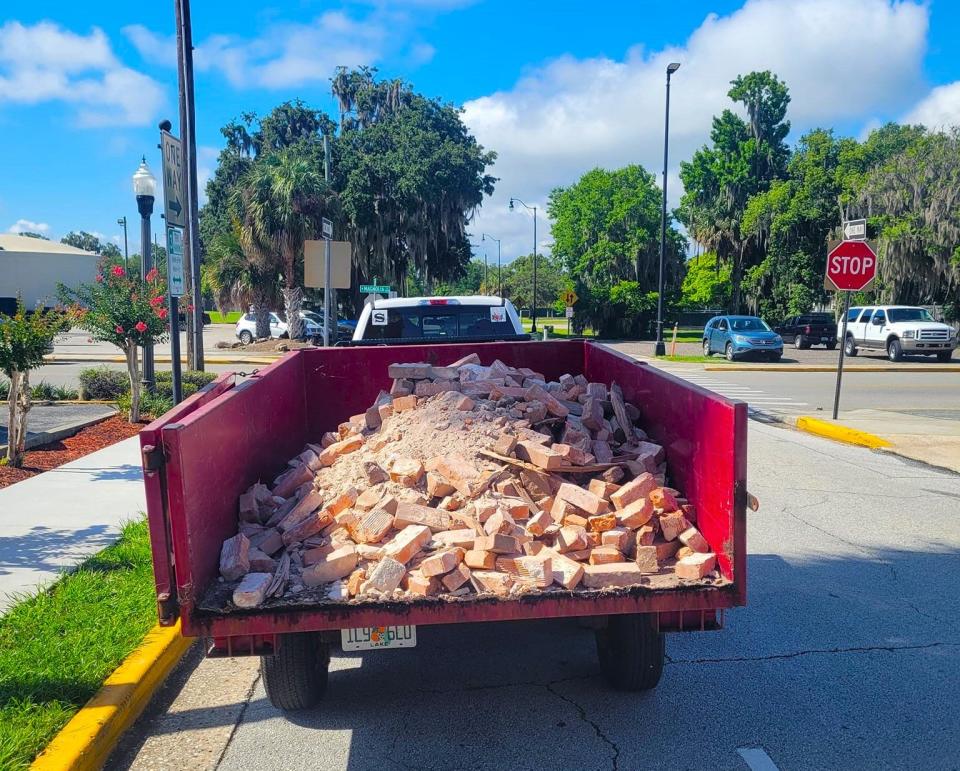A Maine judge Wednesday ordered the state’s top election official to wait for a U.S. Supreme Court ruling before putting into effect her decision to exclude former President Donald Trump from Maine’s Republican primary ballot.
Justice Michaela Murphy of Maine Superior Court said in the ruling that the official, Secretary of State Shenna Bellows, had been forced under Maine law to issue her decision quickly, without the benefit of the high court’s input.
The Supreme Court has agreed to review, at Trump’s request, an earlier decision by a Colorado court to exclude him from the ballot and is expected to hear arguments in the case Feb. 8. Bellows had cited the Colorado court’s reasoning in her decision.
Sign up for The Morning newsletter from the New York Times
“The secretary confronted an uncertain legal landscape when she issued her ruling,” Murphy wrote in a 17-page decision, and “should be afforded the opportunity to assess the effect and application” to her ruling of whatever the high court decides.
She added: “Put simply, the United States Supreme Court’s acceptance of the Colorado case changes everything about the order in which these issues should be decided, and by which court.”
The Maine court ordered Bellows to issue a new decision no later than 30 days after the U.S. Supreme Court ruled on the Colorado case, “modifying, withdrawing or confirming” her earlier decision to keep Trump off the ballot.
Maine is unusual in requiring that its secretary of state rule on ballot-eligibility questions before the courts take them up. Several Maine voters who objected to Trump’s candidacy had petitioned Bellows to keep him off the ballot.
They argued in legal briefs and at a hearing last month that the former president was no longer eligible to hold public office because he engaged in insurrection by encouraging the attack on the U.S. Capitol on Jan. 6, 2021.
A section of the 14th Amendment of the Constitution — enacted originally to exclude former Confederate officials from serving in the federal government — disqualifies government officials who “engaged in insurrection or rebellion” from holding office
In her decision Dec. 28, Bellows, a Democrat elected to her post by state legislators, sided with the voters — a group of three former elected officials who filed one challenge and an individual resident who filed another based on the same argument. She found Trump to be ineligible for the presidency, and thus the Maine ballot, because he had used “a false narrative of election fraud to inflame his supporters” in a bid to prevent a peaceful transfer of power after the 2020 election.
Her finding made Maine the second state to block Trump, after Colorado’s highest court reached the same conclusion.
The fates of other ballot challenges in states around the country may also hinge on the Supreme Court’s decision. Formal challenges have been filed in at least 35 states; although the primary season is already underway, more than half of those states still have unresolved cases.
The Republican primaries in Maine and Colorado are both scheduled for March 5, also known as Super Tuesday because many states hold primaries that day. The deadline for Maine to mail ballots to voters overseas is Saturday.
Lawyers for Trump appealed Bellows’ decision to the Maine Superior Court a few days after it was issued, arguing that she had “no legal authority to consider the federal constitutional issues presented by the challengers.” They described her decision as “the product of a process infected by bias.”
A spokesperson for Trump called the court’s directive “a correct action” in a statement Wednesday.
“President Trump is confident that we will ultimately prevail with a fair ruling on the issues in front of the Supreme Court,” said Steven Cheung, the spokesperson. “We will not stop fighting the remaining bogus, bad faith 14th Amendment ballot challenges.”
Ethan Strimling, a former Portland mayor who sought Trump’s removal from Maine’s ballot, said his group of challengers was “happy with the court’s decision to leave the secretary’s ruling intact” instead of reversing it.
A poll by the University of New Hampshire found Maine residents to be sharply divided over Bellows’ decision, with 85% of Democrats expressing support and 95% of Republicans opposed. Independent voters were divided about evenly, with 47% in favor and 49% opposed.
Nicholas F. Jacobs, an assistant professor of government at Colby College in Waterville, Maine, called the court’s action “a prudent decision,” given voter concern about partisanship in the election process.
“At a time when the security and validity of American elections are coming under greater suspicion, it is admirable to see an institution take a step back and think about the damage they could do,” he said. “That’s good for all Mainers, even if they wanted the court to reach a certain decision today.”
Murphy was first appointed to the Maine court by Gov. John Baldacci, a Democrat, and then reappointed by his successor, Gov. Paul LePage, a Republican.
Her move to delay a decision on Trump’s ballot eligibility “minimizes any potentially destabilizing effect of inconsistent decisions,” Murphy wrote, “and will promote greater predictability in the weeks ahead.”
c.2024 The New York Times Company
Signup bonus from





